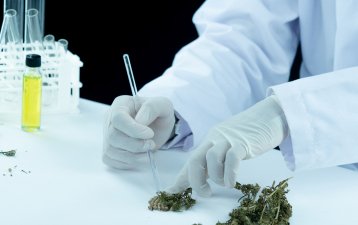
2025 – Centenary of Cannabis Prohibition
It has been 100 years since the prohibition of a

When facilitating a cannabis psychedelic session, psychotherapists and counselors should be well-informed about cannabis-specific knowledge and considerations that may not be part of their traditional training. Here are some aspects of cannabis that they should know:
It’s important for therapists to recognize that facilitating cannabis-assisted therapy is a specialized field, and they should seek additional training and consultation from experts in this area to provide safe and effective support to their clients. Additionally, therapists should always prioritize client safety and well-being and adhere to ethical guidelines and legal requirements in their jurisdiction.
Cannabis Psychedelics offers an expert cannabis psychedelic training course to ensure all of the above (and more) is taught by world experts from Europe, USA, Asia and of course throughout Australia.

It has been 100 years since the prohibition of a

Cannabis Psychedelics: The Ancient Greek Secret to Creativity, Wellness, and

A new study funded by the National Institute on Drug